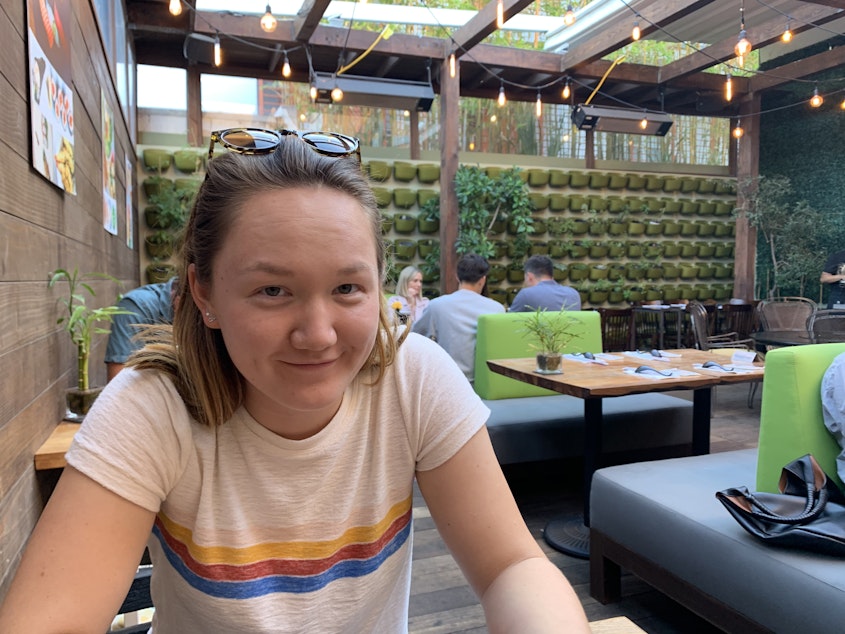College during Covid-19: Uncertainty troubles students and schools

Some American colleges have already said it: They’re not holding in-person classes this fall because of the pandemic. But others have put off the decision.
That has students wrestling with whether to enroll for the fall — or try to defer enrollment till they can be sure to have a full college experience.
Abby Euyang is one of them. She was a junior at Pomona College this spring when the school announced it was closing and everyone had to leave.
“I was helping my friend pack up her room,” Euyang said. “And she turned to me, and she said, ‘Abby, what if we don’t even come back in the fall?’”
It’s a question college administrators themselves are asking.
Most colleges are planning for in-person classes this fall. But about one-third of schools are planning to hold classes online or are waiting to make a decision.
Pomona’s in that camp: Administrators say they’ll make an announcement in July, just two months before classes are supposed to start.
Sponsored
And Euyang says she was not impressed this spring when she was living back at her mom’s house in Seattle, taking online classes.
“Everyone I know was just like texting during class or like scrolling through Facebook,” she said. “We would have group chats with our classmates about how boring the class was.”
And, Euyang adds, what about all the learning that happens outside the classroom: meeting with classmates in the library or having dinner at professors’ houses? Or, for a student-athlete like Euyang, competing on the golf course?
“If it’s online, what are you paying for? It’s a waste of my time and a waste of my mom’s money,” Euyang said.
Thinking like that is a big problem for a lot of schools, said Scott Carlson, who covers college finance for the publication The Chronicle of Higher Education.
Sponsored
“How many students will actually show up in the fall? That’s the huge, huge question,” he said. “The deposits look good. That means that the students have plunked down a few hundred dollars to secure a spot. That’s not a guarantee of anything.”
Carlson said the whole situation is putting colleges in a precarious financial position. Endowments have taken huge hits. Declining enrollment could be a death knell. Some colleges have already closed their doors permanently because of the pandemic.
“I think, once we get into August, we’ll see a lot more,” he said.
Some schools are trying to deal with the question of uncertain enrollment by taking a tough line against deferment. University of Washington President Ana Mari Cauce told KUOW recently that UW does not do deferred admissions.
“You know, it’s not that we’re doing anything differently because of Covid, that we’ve instituted any new rules, but rather this has always been the way that we do things,” she said.
Sponsored
It’s not just schools that are worried about money.
Angie Aguirre-Tobar just graduated from Kennedy Catholic High School in Burien. She’s headed to Brandeis University in the fall.
She’s been dreaming of college since she was in elementary school; she’ll be the first in her family to get an undergraduate degree. Then Covid-19 started to change what college might look like.
“It’s earth-shattering,” she said. “When you have a set bullet list, it’s kind of like that ink that you wrote down is completely blotched over. Someone spilled water all over it.”
A big part of her financial aid package is “work-study” -- an on-campus job Brandeis would give her. But if school isn’t in person, she’s not sure the college will have a position for her.
Sponsored
“My family is not financially strong enough to really pay a lot,” she said.
Aguirre-Tobar said if Brandeis can’t give her remote work, she’ll keep her current job at a warehouse.
But she said she’s starting college this fall, no matter what – even though she won’t know what Brandeis plans for the fall till early July.
“I would continue to power through,” she said. “I want to graduate in four years — in 2024. That is my goal.”
Correction, 7:40 a.m., 6/11/2020: An earlier version of this story incorrectly characterized a statement by UW President Ana Mari Cauce on student deferments. Cauce said UW policy has not allowed deferments and that policy has not changed during the pandemic.
7:30 a.m., 6/15/2020: Scott Carlson writes for The Chronicle of Higher Education. An earlier version of this story listed the wrong publication.




